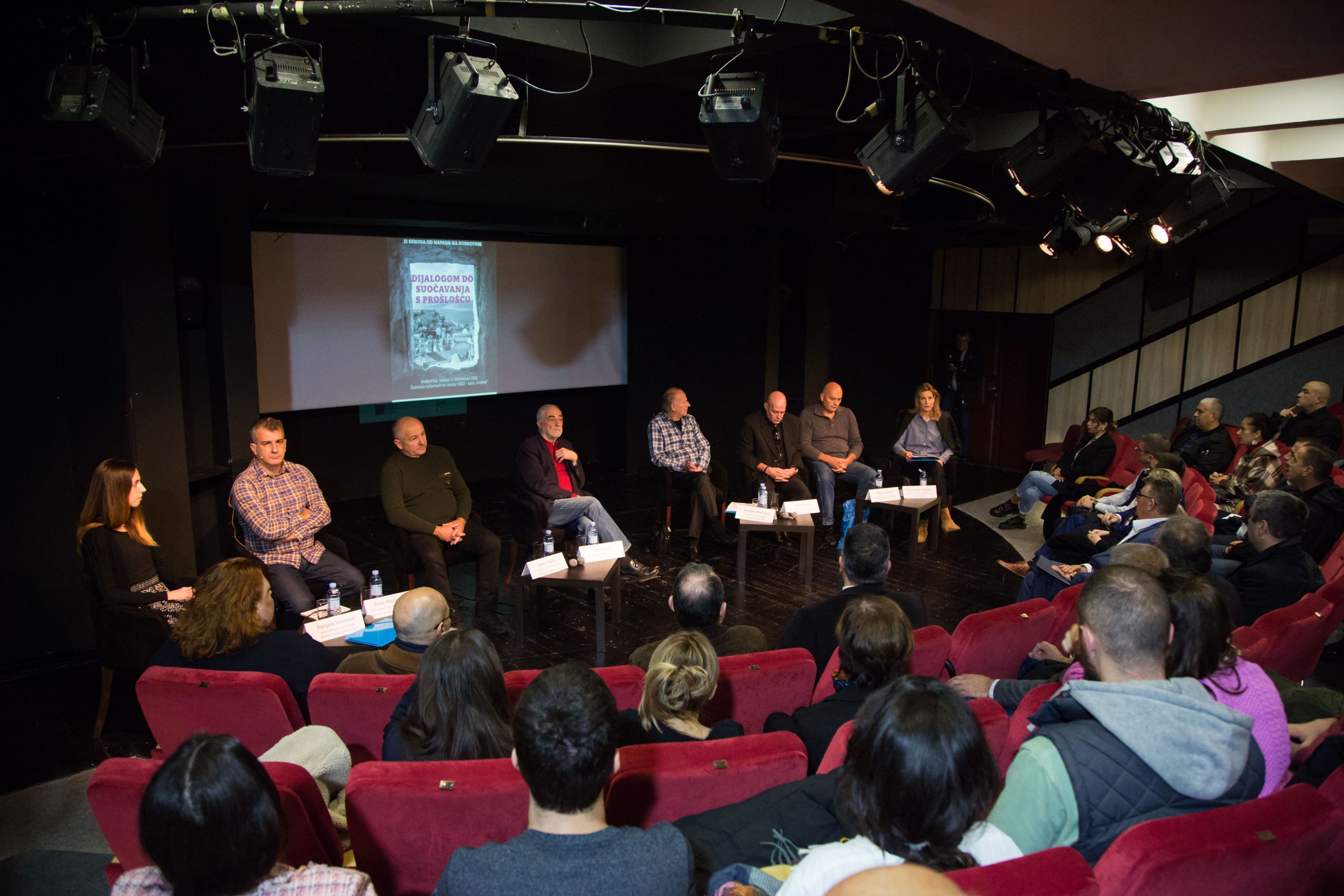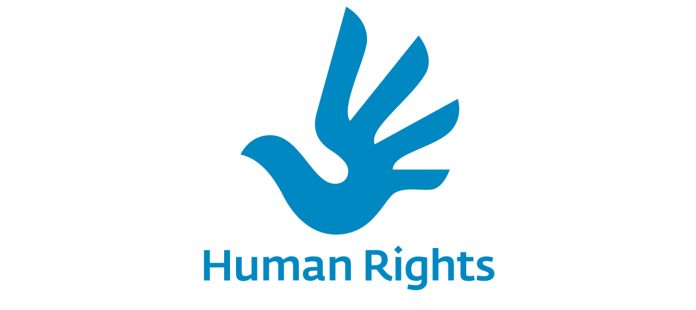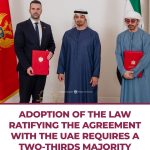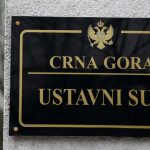
Message from the conference “Dialogue to Face the Past”: All for Peace, All Against War
07/12/2022
We are requesting a public debate on the Law on the Confiscation of Assets
19/12/2022International Human Rights Day in Montenegro

The fact that, on the International Human Rights Day, all human rights in Montenegro are threatened by the institutional collapse of the Constitutional Court is quite devastating.
By failing to elect the missing judges on time, the political elite showed irresponsibility towards the concept of protection of human rights. Human rights and freedoms are prescribed by the Constitution and ultimately protected by the Constitutional Court.
Montenegrin society must go back to respecting common fundamental values. General interest in the protection of human rights, established by the Constitution, must not be the subject of political trade!
The work of Constitutional Court is blocked because it operates with just three out of 7 judges, and can decide on constitutional appeals only with the consent of all three. The Court currently has 2,815 pending cases, of which 2,513 are constitutional appeals, including 10 from the year 2017. Having in mind the standard from the practice of the European Court of Human Rights, the right to an effective legal remedy before the Constitutional Court has already been violated in the appeal proceedings from 2017, 2018 and 2019.
As many as 273 proposals and initiatives for the review of constitutionality and legality are already awaiting decisions, with two such cases dating back to 2016. For more than two years, no decision has been made on the Judicial Council’s proposal to review the constitutionality of the law on the basis of which the office of 28 judges has been terminated, or on the proposal of the Prosecutorial Council and the State Prosecutor’s Office on the basis of which the same was done to the office of 10 state prosecutors.
Twenty seven election appeals were filed in connection with the local elections (five in relation to the pre-election process and 22 in relation to the election day), as well as one case related to the resolution of conflict of jurisdiction and one to determine whether the President of Montenegro had violated the Constitution. Local elections were conducted without a functioning Constitutional Court, although – according to the Constitution and the law – it is precisely this state body that guarantees their legitimacy. The municipalities of Budva and Kolašin unlawfully announced the final election results before the election appeals against those municipalities were decided upon.
This year, too, was marked by the ‘acting’ situation concerning the leading positions in the judiciary. The acting officials occupy the following positions: the Supreme State Prosecutor, President of the Supreme Court and presidents of four other courts, as well as three members of the Judicial Council from the ranks of distinguished lawyers. After more than four years, one new member from among the ranks of distinguished lawyers was finally elected at the end of September 2022, while the remaining three continued to discharge their offices for the third term, i.e. the ninth consecutive year. Such a Judicial Council is illegitimate, and the three lawyers should leave that body. Instead of stopping the country’s progress towards the European Union with their failure to act, people’s deputies should have taken responsibility a long time ago and elected the three missing lawyers to the Judicial Council.
A positive development was the new Draft Law on the Judicial Council and Judges, which fulfilled the long-standing international bodies’ recommendations aimed at creating an independent and impartial judiciary. Compared to last year, when changes were made to the Law on the State Prosecutor’s Office, the Ministry of Justice has shown a significantly higher degree of transparency and willingness to involve the public in changes to the Law on the Judicial Council and Judges. However, the fact that public debates for this and two other important systemic laws (such as the Criminal Code and the Criminal Procedure Code) were scheduled in August, i.e. at the time of summer holidays, certainly reduced the effect of said debates and prevented the submission of suggestions by all interested parties.
It is necessary to amend the Law on the State Prosecutor’s Office to ensure a more objective performance evaluation and determination of the responsibility of state prosecutors. The European Commission also expected those changes to be made this year, but they were not even included in the Government’s work programme.
This year, work was done on changes to systemic laws that are highly important for the human rights – the Criminal Code and the Criminal Procedure Code. The Draft Criminal Code partially adopted the long-standing recommendations of international bodies in the field of protection of victims of torture. However, since the public debate was conducted in August, it was never published which suggestions were accepted and which were not regarding the Criminal Procedure Code. HRA’s proposals were mostly aimed at protecting citizens from ill-treatment by the police. We also welcome the proposed changes to the Law on Free Legal Aid, which expand the circle of beneficiaries of that right.
This year, the National Assembly of Montenegro ratified Protocol 16 to the Convention for the Protection of Human Rights and Fundamental Freedoms, which allows judges to seek and receive advice from the European Court of Human Rights regarding fundamental issues of interpretation of the European Convention on Human Rights and its accompanying protocols.
The ineffectiveness of investigations into ill-treatment by the police is still one of the key problems in the protection of human rights and freedoms in Montenegro. This was confirmed in May this year by the UN Committee against Torture, which expressed concern over reports of physical and psychological police torture of persons deprived of liberty, extortion of testimony and lack of effective investigations into such reports. This year, six people were charged with extortion of testimony in three cases, while the HRA recorded as many as 19 such cases in the previous two years. It is particularly worrying that even after two and a half years there is no indictment for extorting testimony from Jovan Grujičić in the case of the “bombing attacks”, despite the fact that international experts also established that he was a victim of ill-treatment. In that case, the High State Prosecutor’s Office twice revoked the decision on the dismissal of the criminal report by the competent state prosecutor. The Basic State Prosecutor’s Office in Podgorica is failing to see the three cases as a whole, i.e. as organised ill-treatment of people by members of the same police unit. Investigations into well-founded reports of police torture during the protests in Budva, Nikšić and Pljevlja in 2020 and in Cetinje in 2021 did not receive an epilogue either. The European Committee for the Prevention of Torture (CPT), which visited Montenegro in June, received complaints of ill-treatment from a quarter of the persons they interviewed in police detention, which is fewer than before. This year, there are twice as few criminal reports for acts of torture (19) than in previous years, but it is not known whether this is a consequence of a change in police practice or a lack of people’s willingness to file such reports with the authorities.
This year, too, the Government did not take a strategic approach to dealing with the past. However, some long-awaited positive developments have been made. This year, for the first time, the commemoration of the war crime of Refugee Deportation was attended by four ministers from the Government of Montenegro and the Director of the Police Administration. For the first time after 30 years, the families of the victims received a long-awaited apology from the police and the Ministry of Internal Affairs for the illegal arrest and handing over of refugees to the army of the Republic of Srpska (BiH). The Minister of Internal Affairs publicly supported the initiatives of non-governmental organisations to place a memorial plaque at the gathering venue and establish a day of remembrance of the victims of this war crime. However, nothing has been done to date in this regard. The joint unveiling of the memorial plaque dedicated to Admiral Barović on the island of Vis by the delegations of Montenegro and Croatia was a positive event. This year was also marked by the installation of a controversial memorial plaque on a military facility in Morinje, which, through irresponsible actions of politicians, rendered meaningless the confrontation with the past and the honouring of victims. Together with the Centre for Civic Education and the Centre for Peace and Women’s Education ANIMA from Kotor, HRA will continue to advocate for the installation of a memorial plaque in Morinje. This plaque should be accessible to all, point to the responsibility of Montenegro, and call for lasting peace among nations.
This year, the Government did not accept the call of the representatives of the victims and the HRA to enter into an out-of-court settlement with the victims of Murina, who have not managed to realise their right to compensation in 23 years. The Law on Veterans and Disability Protection has yet to recognise civilian victims of war.
This year, on the initiative of Bosnia and Herzegovina, criminal proceedings were initiated for the war crime of double murder and rape in Foča. No new investigations were opened and no indictments were filed by the Montenegrin prosecutor’s office. Old cases whose processing was criticised by the European Commission were not reviewed. Serbia is ignoring Montenegro’s request for the extradition of Zoran Vuković, convicted of the crime against the Klapuh family, and we have no information that the Government is doing anything about this.
Unresolved cases of attacks on and endangering the safety of journalists continue to be an obstacle to the establishment of minimum standards for the respect of freedom of expression. There has been no progress in the investigations of key attacks on journalists from earlier years. Neither this Government nor the previous two hired foreign experts to shed light on the murder of Duško Jovanović, editor-in-chief of the daily newspaper Dan. The orderers and perpetrators of the attempted murder of journalist Tufik Softić in 2007 were never prosecuted, and the case fell under the statute of limitations on 1 November of this year. Although some progress has been made in the investigation of the attack on the journalist of Vijesti Olivera Lakić in 2018, we expect it to focus on those who ordered the attack.
This was another year that was marked by intense hate speech, especially towards women in the public sphere, the Roma population and LGBT people. It is necessary to improve the processing of those cases and specify the difference between a criminal offence and a misdemeanour in cases involving hate speech. Inadequate processing of politicians’ hate speech allows the spread of such speech among citizens. The Assembly never had the President of the Committee for Human Rights and Freedoms, Jovan Vučurović, prosecuted for hate speech and homophobic attitudes, despite the requests of 20 members of the coalition Together for LGBTIQ Rights. Jovan Markuš was not dismissed from membership in the National Commission for UNESCO due to hate speech either; instead, he proceeded to apply the same type of speech to the Roma population.
The government concluded the “Basic Agreement between Montenegro and the Serbian Orthodox Church” despite the appeal to align the text of the Agreement with positive law. The Government rejected all expert comments concerning the non-compliance of its provisions with the legal order, so – consequently – the constitutionality of this Agreement is now questionable. Proceedings challenging the Agreement have been initiated before the court, and we expect them to be effectively carried out.
This was another year in which Montenegro did not fulfil the recommendations of the UN Committee for Economic, Social and Cultural Rights from 2014, i.e. did not provide an appropriate standard of living for socially vulnerable persons, particularly the unemployed, the elderly and people with disabilities. Although slightly increased, the amount of social benefits is still 6 times lower than the price of the minimum consumer basket. It does not ensure survival, rather encouraging the gray economy and exploitation of the poorest citizens. There are no precise data on the number of indigent and homeless people, or people who do not have adequate housing or access to basic infrastructure and services such as water, heating, sanitation and electricity. No by-law of any kind has been adopted that would explain how the homeless are taken care of, what services are available to them and in what way. As a result, the employees of the Social Welfare Centre do not have clearly defined steps in the process of taking care of them. The strategy for the fight against poverty has not been adopted and, judging by the Government’s Medium-Term Work Programme for the period 2022-2024, its development is not even planned.
The recommendations of the UN Committee on the Rights of Persons with Disabilities from 2017 have not been fulfilled either, especially with regard to the necessary reform of guardianship and decision-making on behalf of a person, which prevents persons with disabilities from freely making decisions about their lives. The practice of depriving persons of their business capacity has continued, and persons with psycho-social disabilities are accommodated mostly in institutions. Approximately 46% of the patients of the Special Psychiatric Hospital in Kotor are still the so-called ‘social patients’, i.e. people who no longer need hospital treatment but continue to live in the Hospital because the state has no other solution for their care.
Although the Government planned to adopt the Strategy for the Deinstitutionalisation and Development of Services for Community Life 2023-2026 (with an Action Plan for 2023) in the fourth quarter of 2022, the Strategy has not yet been adopted and it is unknown whether a working group in charge of its drafting has been established.
Unfortunately, the last Government did not accept HRA’s proposal to prepare a comprehensive report on the implementation of all recommendations of relevant international organisations to improve respect for human rights.







 English
English